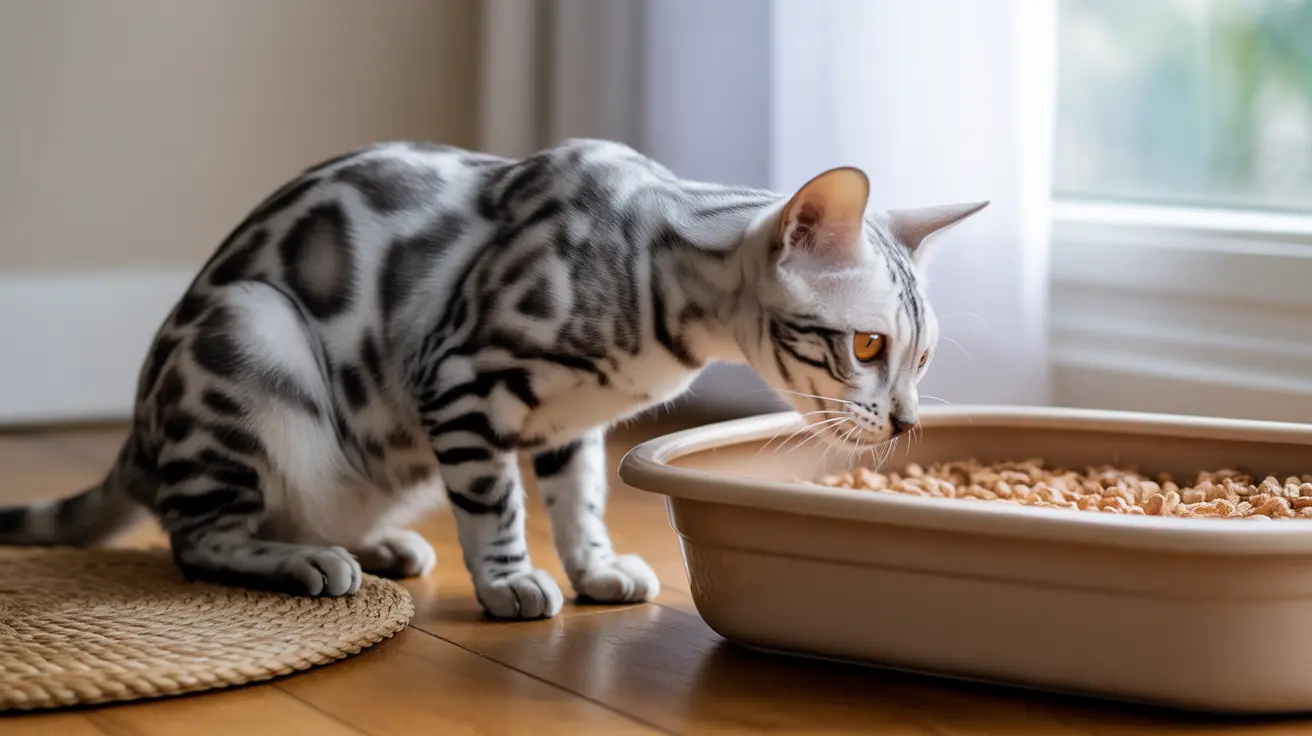Understanding Sweet-Smelling Cat Urine
The most common reason for sweet-smelling cat urine is diabetes mellitus. When a cat's body cannot properly process glucose, excess sugar spills into the urine, creating a distinctively sweet or fruity odor. This condition, known as glycosuria, is a classic indicator of feline diabetes.
Primary Causes and Risk Factors
Several factors can contribute to the development of conditions causing sweet-smelling urine:
- Obesity
- Age (middle-aged and senior cats are at higher risk)
- Sedentary lifestyle
- Male gender (males are slightly more prone to diabetes)
- Certain breeds with genetic predispositions
Additional Warning Signs to Watch For
Sweet-smelling urine rarely occurs in isolation. Other symptoms that often accompany this condition include:
- Increased thirst and urination
- Unexplained weight loss
- Increased appetite
- Lethargy
- Poor coat condition
- Sticky residue in the litter box
When to Seek Veterinary Care
If you notice your cat's urine smelling sweet, don't wait to seek medical attention. Early intervention is crucial for successful treatment and management. This is especially important if you observe additional symptoms like excessive thirst or weight loss.
Treatment and Management
Treatment typically involves:
- Comprehensive veterinary examination
- Blood glucose monitoring
- Insulin therapy (if diabetes is confirmed)
- Dietary modifications
- Regular veterinary check-ups
- Weight management programs
Prevention Strategies
While not all causes of sweet-smelling urine are preventable, you can reduce risks by:
- Maintaining a healthy weight
- Providing proper nutrition
- Ensuring regular exercise
- Scheduling routine veterinary check-ups
- Monitoring water intake and urination patterns
Frequently Asked Questions
Why does my cat's urine smell sweet and what could it mean?
Sweet-smelling cat urine is most commonly a sign of diabetes mellitus, where excess glucose is expelled in the urine. This requires immediate veterinary attention as it indicates your cat's body isn't properly processing sugar.
What are the common signs of diabetes in cats besides sweet-smelling urine?
Common signs include increased thirst and urination, unexpected weight loss despite normal or increased appetite, lethargy, and changes in coat quality. You might also notice more frequent litter box visits.
How can I tell if my cat's sweet-smelling urine is a sign of a serious health problem?
Any change in urine odor, especially a sweet smell, should be considered serious. If accompanied by changes in drinking, eating, or urination habits, or weight loss, it indicates a potentially serious condition requiring veterinary evaluation.
What should I do if I notice my cat's urine has a fruity or sweet odor?
Schedule a veterinary appointment immediately. Don't wait for additional symptoms to develop, as early diagnosis and treatment lead to better outcomes, especially if diabetes is the underlying cause.
Can sweet-smelling urine in cats be caused by conditions other than diabetes?
While diabetes is the most common cause, certain metabolic disorders or kidney issues might also affect urine odor. However, a distinctly sweet smell is most strongly associated with diabetes and should always be evaluated by a veterinarian.
Remember, sweet-smelling urine is never normal in cats and always warrants professional medical attention. Early detection and treatment of underlying conditions can significantly improve your cat's quality of life and long-term health outcomes.






